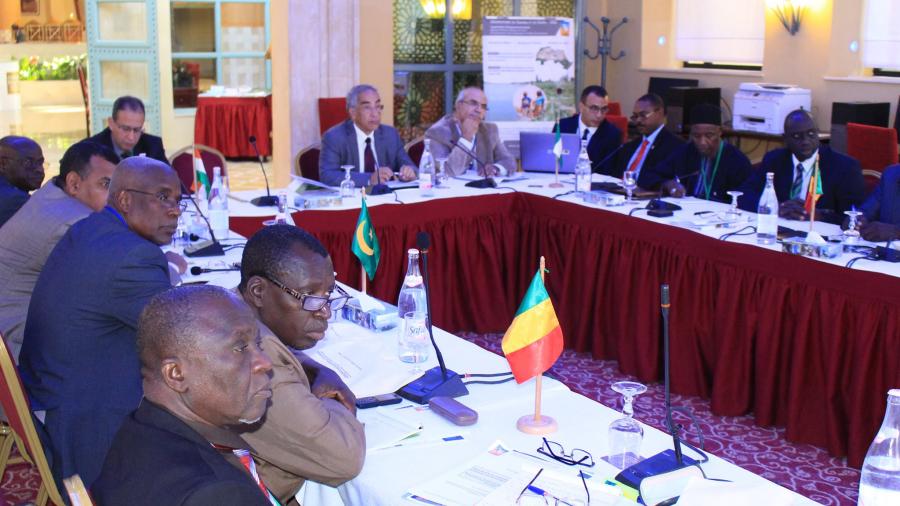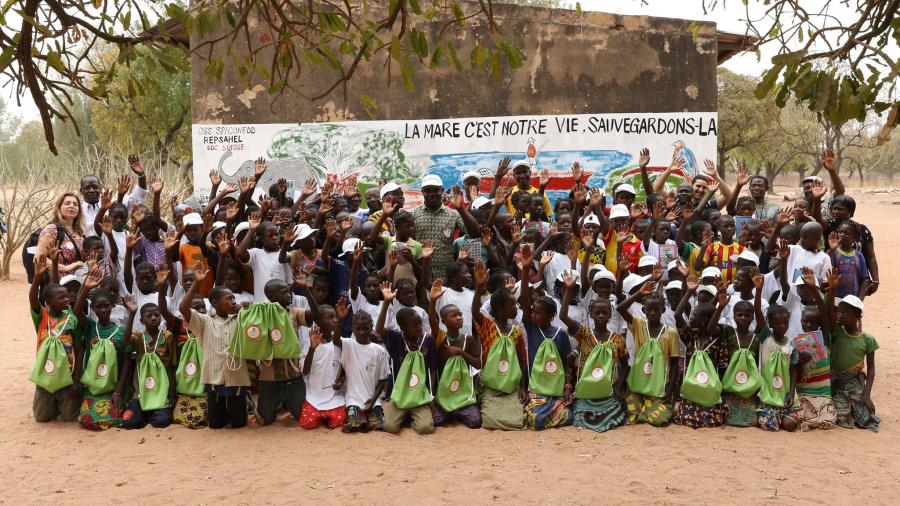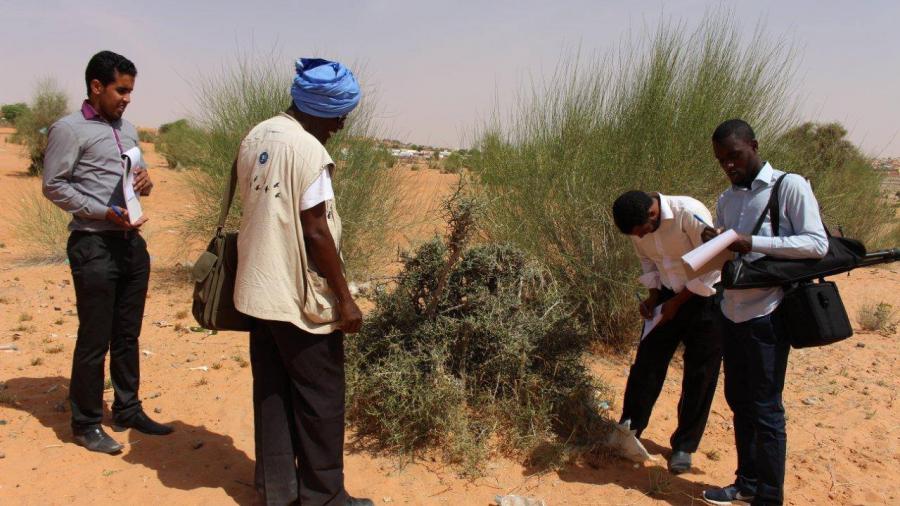Approval Date
June 2012
Project Duration
June 2012 – September 2017
Financial & Technical Partners
SDC Switzerland
Country of operations
Burkina Faso, Mali, Mauritania, Niger, Nigeria, Chad and Senegal
Main Beneficiaries
- Burkina Faso : Le Secrétariat Permanent du Conseil National pour l’Environnement et le Développement Durable (SP/CONEDD)
- Mali : L’Agence de l’Environnement et du Développement Durable (AEDD)
- Mauritania : La Direction de la Programmation, de la Coordination et de l’Information Environnementale/ Ministère l'Environnement et du Développement Durable (DPCIE / MEDD)
- Niger : Le Centre National de Surveillance Ecologique et Environnementale (CNSEE)
- Nigeria : Federal Ministry of Environment
- Senegal : Centre de Suivi Ecologique (CSE)
- Chad : Ministère de l’Environnement et de la Pêche (MEP)
Objectives
Main Objective
Strengthen the capacities of the Sahel populations to address environmental changes, climate change in particular, through a better management of natural resources.
Specific Objectives
- Elaboration and improvement of data and information production tools that enable the monitoring of ecosystems and the assessment of the communities’ adaptive capacity
- Information dissemination through the elaboration of an information circulation system aimed at decision-makers, project implementation actors and communities
- Integration of climate change impacts and other environmental stresses into policymaking processes, notably through the set-up of effective monitoring-evaluation systems
- Establishment of adequate mechanisms and tools to enable a better participation of the communities in decision-making throughout the different stages of the project (planning, implementation, and monitoring-evaluation.)
Project Status
Achieved (30 September 2017)
Achievements
Thematic mapping and environmental monitoring:
- Establishment of 19 observatories representative of different ecosystems and environmental issues in the concerned countries,
- Support to national institutions through the provision of IT tools, GPSs, and automatic weather stations,
- Inventories of existing ecological and socio-economic data,
- Analysis and processing of ecological and socio-economic data collected by the observatories (reports development),
- Design and establishment of mapping data production chains according to technical specifications approved by the partners,
- Development and validation of thematic maps at the national and observatories levels:
- Land use: Niger, Nigeria, Senegal, Burkina Faso, Mauritania
- Update of Mali’s and Chad’s vegetation maps
- Map at the scale of 1/50 000 of the new observatories : Mauritania, Senegal and Chad
Information Circulation
- Establishment of a regional Information Circulation System for the dissemination of the project products,
- Technical and material support for the design and consolidation of information systems at the national level,
- Regular dissemination of the project products in adapted formats through different communication channels in line with the project communication strategy
Integration of environmental monitoring tools
- Implementation of national studies « Analysis of decisional procedures to define the role of populations and the appropriate mechanism for their involvement in decision-making » to promote the integration of M&E at the national level.
- Communication actions for decision makers in matters related to environmental monitoring and thematic mapping products,
- At the international level: through the participation in the UN Conferences of the Parties (UNCCD/UNFCCC),
- At the regional and national levels: through the organization of 14 awareness-raising and results reporting workshops.
- Organization of a regional workshop for parliamentarians and creation of a common platform to improve strategic decisions in terms of sustainable development ,
- Implementation of national studies on local know-how at the observatories level and its valorization through the elaboration of a regional summary of the results obtained;
- Implementation of a regional study on the integration of the gender dimension in climate change adaptation and natural resources management programs and policies in the Sahara and Sahel region;
- Situational analysis of the environmental education actions conducted in the sub-region.
Populations involvement
- Awareness-raising actions to strengthen populations adaptive capacities to environmental changes (desertification, drought, weather events, carbon sequestration) and use of adapted monitoring products
Media Coverage at the regional, national and local levels
- Reportages in local TV channels: Senegal, Mali, Chad, Mauritania, Niger…,
- Elaboration of radio magazines disseminated in community radios,
- Presence in national and sub-regional press and Internet.
Success stories: the REPSAHEL project allowed to conduct meetings with the local communities in the observatories concerned. 10 meetings were held in the beneficiary countries and allowed to bring together a total number of more than 200 people.The environmental education actions concerned more than 1500 pupils per country, of which 50% girls.These actions included drawing competitions for pupils.



